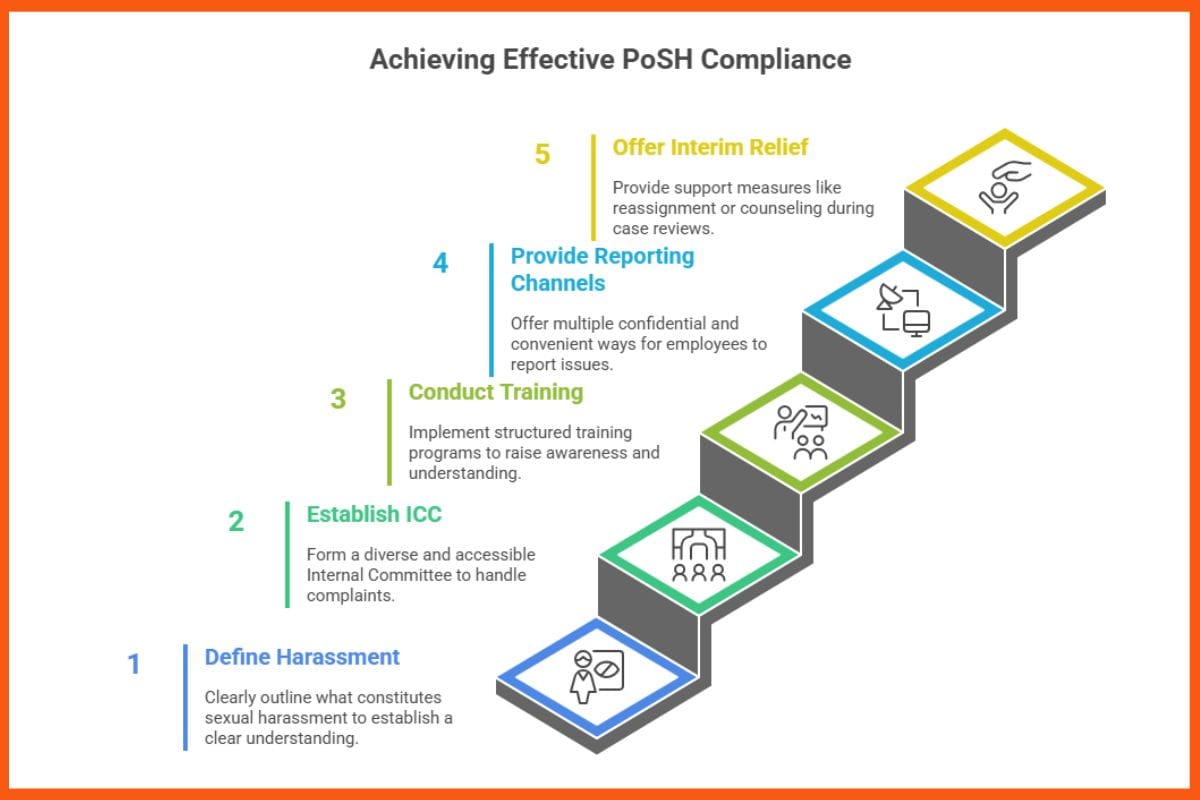This article has been contributed by Neha Mishra, Senior VP- Human Resources, Homesfy.in
Success in today’s workplace is more than productivity and profit; it is about safety, trust, and inclusivity. As organisations grow geographically and embrace hybrid models, creating culturally safe workplaces is no longer optional — it is essential. HR leaders must move beyond policies to embed behaviours and systems that ensure employees feel respected, empowered, and protected.
Compliance must be a living process that empowers employees to expect dignity and respect. A people-first approach views a safe workplace culture as trust-driven, where organisations nurture employees for success and growth.
A Safe Workplace Culture
Workplace culture is more than posters on a wall or compliance checklists. A truly safe culture provides psychological security, respect, and dignity to all employees. In India, this also means aligning with the Prevention of Sexual Harassment (PoSH) Act, while creating an environment where employees can confidently raise concerns, share ideas, and represent themselves without fear of retaliation.
Implementing safety measures goes beyond drafting policies. It requires continuous sensitisation programs, leader accountability, regular PoSH training, and an open-door grievance redressal system. When misconduct is reported, a zero-tolerance policy must be applied with thorough investigation, making it clear that employees can speak up safely and without judgment. True safety is achieved when employees feel heard and protected without compromise.

PoSH Compliance

The Prevention of Sexual Harassment (PoSH) Act plays a pivotal role in safeguarding workplace dignity and ensuring equal opportunity for all employees. However, true compliance is not limited to meeting statutory requirements; it depends on building an environment of trust, transparency, and accountability where employees know their rights and feel supported throughout the process.
A robust PoSH framework starts with clearly defining what constitutes sexual harassment, outlining zero-tolerance for misconduct, and putting in place transparent redressal pathways. The Internal Committee (ICC), composed of trained members from diverse genders, functions, and including an external expert, is central to this mechanism, and details of its members should be easily accessible across the organisation.
Awareness is reinforced through structured induction and annual training programmes, which go beyond legal obligations to cover bystander intervention, confidentiality, and protection from retaliation. Multiple reporting channels — from direct access to the ICC, to encrypted digital forms, email, or helplines — ensure that every employee has a safe, confidential, and convenient way to raise issues. Best practices also include offering interim relief measures such as temporary work reassignments, flexible working arrangements, or access to medical and psychological support while cases are under review.
When complaints are raised, organisations must act with sensitivity and urgency. If conciliation is requested, it should be conducted with the consent and comfort of the complainant. Otherwise, the ICC is required to complete its inquiry within 90 days, with the employer implementing any recommended actions within 60 days.
Ultimately, compliance on paper is not enough. A PoSH framework becomes truly effective when it reflects the organisation’s commitment to trust, fairness, and psychological safety, values that must be consistently demonstrated in practice, not just in policy.
Information Security
Information security should be an integral part of an organisation’s culture and processes; it is not just an obligation, but also critical for compliance and for fostering trust with employees.
For any PoSH matters, sensitive HR data is managed through a secure case management system with limited task-based access to the details, permitting only the ICC Chair, investigator HR representative, and Head of HR to view the information. No changes can be made to the system or uploaded documentation without authentication. All access is logged, and data is encrypted both at rest and in transit. The limit on sharing from the case management system is strictly within a secure enterprise method.

Handling Sensitive Employee Issues
Sensitive and important matters must be handled with both empathy and process, promoting dignity and fairness at every stage. The first priority is the safety and wellbeing of all involved. Risks, relevant medical needs, requests for separation, and the urgency of evidence must be assessed as soon as possible.
Investigations should be trauma-informed: participants are in safe places, always have supporters present, sensitive questions are asked with care, and breaks are allowed as needed. Evidence is ethically collected, including emails, chats, CCTV, and call logs, and devices are preserved only with consent or through legal processes. Custody logs should be kept when items are preserved for potential future use via appropriate procedures.
Decisions must be fair. Proven cases require respective disciplinary action and significant workplace changes, unproven cases are counter-productive and should restore people’s reputations, and malicious complaints must be acted upon in accordance with policies. After resolution, focus should shift to aftercare. This includes checking participant well-being, expanding support when they return to work, monitoring for anti-retaliation, and providing confidential updates and support.
Scaling Culture
As organisations grow, it is culture, not just processes, that sustains safety and inclusivity. Leaders act as custodians, consistently modelling values across teams and geographies. Formal codes of conduct, culture audits, and open feedback loops help maintain alignment and accountability.
When trust and safety are embedded in the DNA of the organisation, compliance naturally follows. Scaling responsibly means ensuring that no matter where employees work, they experience the same standards of dignity, protection, and respect.

